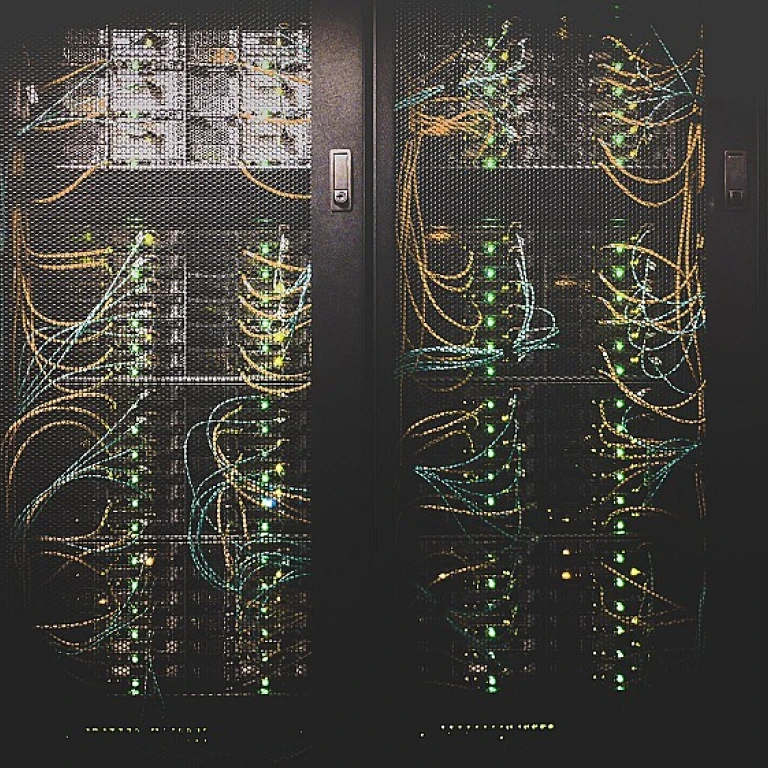
The Role of AI in Modern Libraries
AI's Transformative Role in Libraries
The integration of artificial intelligence in libraries is reshaping how these cultural institutions operate and serve their communities. In San Francisco, libraries are at the forefront of this transformation, leveraging AI to enhance library services and improve the user experience. AI-driven tools are enabling libraries to offer personalized reading recommendations, automate routine tasks, and provide virtual assistants that help patrons navigate vast collections of books and resources.
AI's role in modern libraries extends beyond mere automation. It is about unlocking the full potential of data to provide personalized services that cater to individual needs. For instance, AI can analyze reading patterns and preferences to offer tailored recommendations, making the library experience more engaging and relevant for each patron. This personalized approach not only enriches the user experience but also fosters a love for learning and exploration among library visitors.
Moreover, AI is helping librarians manage and organize information more efficiently. By automating repetitive tasks, librarians can focus on more strategic activities, such as curating content and developing programs that enhance community engagement. This shift allows libraries to remain vital centers of knowledge and culture in the digital age.
As libraries continue to embrace AI, they must also address challenges related to data privacy and ethical considerations. Ensuring that patron data is protected while delivering personalized services is crucial for maintaining trust and credibility. The future of libraries lies in balancing technological advancements with the core values of accessibility and inclusivity.
For more insights into how AI is shaping various sectors, including libraries, explore the evolution of predictive maintenance tools and their impact on different industries.
Ryan Hess: A Visionary in Library Innovation
Ryan Hess: Pioneering the Future of Library Innovation
In the bustling city of San Francisco, libraries are not just about books anymore. They are evolving into dynamic hubs of learning and cultural exchange, thanks in part to the innovative vision of Ryan Hess. His work in transforming libraries into modern centers of knowledge has been instrumental in integrating artificial intelligence into library services.
Ryan Hess has been at the forefront of this transformation, advocating for the use of AI to enhance the library experience. His approach focuses on leveraging data to provide personalized reading recommendations and improve user experience. By implementing AI-driven tools, libraries can now offer services that are more tailored to individual patrons, making it easier for them to discover new books and resources that match their interests.
Hess's vision extends beyond just automating library processes. He believes in the potential of AI to unlock new possibilities for librarians, enabling them to focus more on training, education, and providing personalized assistance. This shift not only enhances the library's offerings but also enriches the cultural fabric of the community by fostering a love for learning and exploration.
As libraries continue to evolve, the role of AI in shaping their future cannot be understated. Ryan Hess's contributions are paving the way for a new era of library science, where technology and human expertise work hand in hand to create a more engaging and personalized library experience for all.
For more insights into how predictive maintenance tools are revolutionizing various sectors, you can explore this article.
Challenges of Implementing AI in Libraries
Overcoming Hurdles in AI Adoption
As libraries in San Francisco and beyond strive to integrate artificial intelligence into their services, they face a range of challenges. One of the primary concerns is data privacy. With AI-driven systems collecting vast amounts of user data to provide personalized reading recommendations, libraries must ensure that patrons' information is protected. This requires robust data management practices and adherence to privacy regulations.
Another significant challenge is the training and education of library staff. Librarians need to be equipped with the skills to manage and utilize AI tools effectively. This involves not only technical training but also an understanding of how AI can enhance the library experience without compromising the cultural and educational values that libraries uphold.
Furthermore, the implementation of AI technologies can be costly. Libraries must balance their budgets to invest in these innovations while continuing to provide traditional services. This financial strain can be particularly challenging for smaller libraries with limited resources.
Despite these challenges, the potential benefits of AI in libraries are immense. By automating routine tasks, AI can free up librarians to focus on more personalized services, such as offering tailored reading recommendations and enhancing the overall user experience. As libraries continue to evolve, overcoming these hurdles will be crucial to unlocking the full potential of AI in transforming library services.
For more insights into the role of AI in modern libraries, you can explore the future of software integration.
AI Tools and Technologies in Use
AI Tools Revolutionizing Library Services
In the heart of San Francisco, libraries are embracing artificial intelligence to enhance the library experience for patrons. These tools are not just about automating tasks; they are about transforming libraries into dynamic hubs of learning and cultural exchange. AI-driven technologies are enabling libraries to offer personalized reading recommendations, making it easier for patrons to discover books they love.
One of the most exciting developments is the use of virtual assistants. These assistants help librarians manage data more efficiently, allowing them to focus on providing personalized services. By analyzing user data, libraries can offer tailored recommendations, improving the overall user experience. This shift towards a more personalized approach is a testament to the future libraries are heading towards.
Moreover, AI tools are unlocking new possibilities in library science. They assist in training education programs, ensuring librarians are equipped with the skills needed to navigate the digital age. The integration of AI in library services is not just about keeping up with technological advancements; it's about enhancing the cultural and educational role libraries play in society.
However, as libraries embrace these innovations, data privacy remains a critical concern. Balancing the benefits of AI with the need to protect patrons' information is a challenge that requires careful consideration. As libraries continue to evolve, the focus will be on creating a secure environment where patrons can enjoy the full benefits of AI-driven services.
The Impact on Library Patrons
Enhancing the Library Experience for Patrons
In the vibrant cultural landscape of San Francisco, libraries are evolving to meet the needs of their patrons in innovative ways. The integration of artificial intelligence is transforming libraries into more dynamic spaces, offering personalized reading experiences and recommendations that cater to individual preferences. This shift is driven by the desire to unlock the full potential of library services and enhance user experience.
AI-powered virtual assistants are now a staple in many libraries, helping patrons navigate vast collections of books and resources. These assistants help automate routine tasks, allowing librarians to focus on more complex inquiries and personalized services. By leveraging data, libraries can provide tailored recommendations, making the library experience more engaging and relevant for each visitor.
San Francisco's libraries are at the forefront of this transformation, with AI tools enabling libraries to offer services that were once unimaginable. Patrons can enjoy personalized reading suggestions based on their past interactions and preferences, fostering a love for learning and exploration. This personalized approach not only enhances the library experience but also encourages more frequent visits and deeper engagement with library resources.
However, the integration of AI in libraries is not without its challenges. As discussed earlier, data privacy remains a critical concern, and libraries must navigate these issues carefully to maintain trust with their patrons. Despite these challenges, the future of libraries looks promising, with AI playing a pivotal role in shaping the future of library science and services.
Future Prospects for AI in Libraries
Envisioning the Future of AI in Libraries
The integration of artificial intelligence in libraries is set to revolutionize the way patrons interact with these cultural hubs. As AI continues to evolve, libraries in San Francisco and beyond are poised to unlock new potentials in personalized reading experiences and library services.
AI-driven tools will enable libraries to offer personalized recommendations, enhancing the user experience by tailoring book suggestions and services to individual preferences. This shift towards personalized reading and recommendations will not only automate routine tasks but also free up librarians to focus on more complex, human-centric roles.
Virtual assistants, powered by AI, will become integral in assisting patrons with their queries, making the library experience more interactive and engaging. These assistants help patrons navigate vast collections of books and data, ensuring that everyone can find what they love learning about.
However, the future of AI in libraries isn't without its challenges. Data privacy remains a significant concern, and libraries must ensure that the implementation of AI respects user privacy while providing valuable insights. Training and education in library science will be crucial in preparing librarians to work alongside AI technologies, ensuring a seamless integration that benefits all.
As we look to the future, the role of AI in transforming libraries is clear. By embracing these technologies, libraries can continue to be vibrant centers of knowledge and culture, offering enhanced services and a richer library experience for all patrons.















